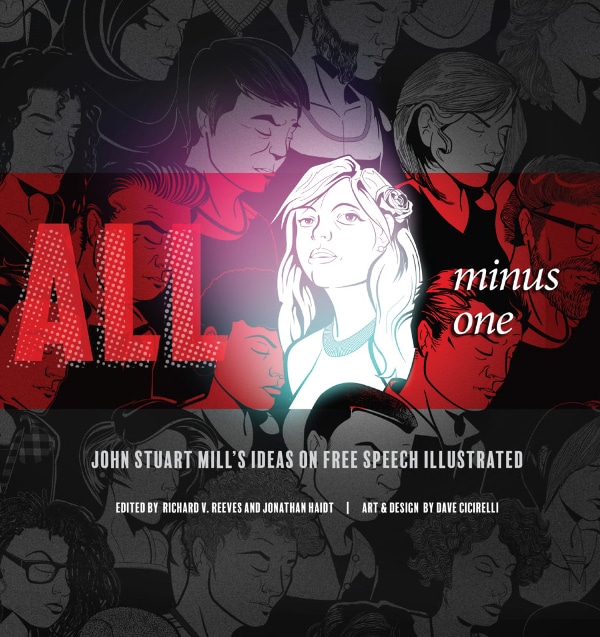
There’s been quite a bit of ugliness down in the States the past few years, particularly on college campuses with ‘deplatforming’ and ‘disinviting’ of speakers, speakers and professors being shouted down, censured or even fired, mostly over free speech issues. A disturbing trend for sure.
Professor Jonathan Haidt and others started an organization called the Heterodox Academy to address this.
“Heterodox Academy is a non-profit alliance of professors from across the political spectrum who agree with Mill that “he who knows only his own side of the case, knows little of that.” We advocate for increased viewpoint diversity in higher education. We offer tools and ideas that help universities create the vibrant cultures of debate that Mill thought were essential for the pursuit of truth.”
–HeterodoxAcademy.org
I mentioned in a previous post that one of the projects they’d undertaken was to edit the chapter from John Stuart Mill’s On Liberty to make it more accessible to high school and university-aged students as well as a tool for teachers. In my opinion, they did a fantastic job. I wanted to share a few chunks of Mill’s that seem particularly relevant to the issues facing universities.
“The peculiar evil of silencing the expression of an opinion is, that it is robbing the human race; posterity as well as the existing generation; those who dissent from the opinion, still more than those who hold it. If the opinion is right, they are deprived of the opportunity of exchanging error for truth; if wrong, they lose, what is almost as great a benefit, the clearer perception and livelier impression of truth, produced by its collision with error.”
“Yet it is as evident in itself, as any amount of argument can make it, that ages are no more infallible than individuals; every age having held many opinions which subsequent ages have deemed not only false but absurd; and it is as certain that many opinions, now general, will be rejected by future ages, as it is that many, once general, are rejected by the present.”
“However unwillingly a person who has a strong opinion may admit the possibility that his opinion may be false, he ought to be moved by the consideration that however true it may be, if it is not fully, frequently, and fearlessly discussed, it will be held as a dead dogma, not a living truth.”
“But there is a commoner case…when the conflicting doctrines, instead of being one true and the other false, share the truth between them; and the non-conforming opinion is needed to supply the remainder of the truth, of which the received doctrine embodies only a part. Popular opinions, on subjects not palpable to sense, are often true, but seldom or never the whole truth.”
“Not the violent conflict between parts of the truth, but the quiet suppression of half of it, is the formidable evil; there is always hope when people are forced to listen to both sides…”
